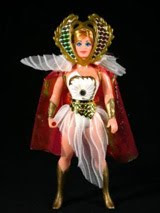
I began this book with a preconceived idea about the Japanese in Korea, based on the book I had just finished reading: Year of Impossible Goodbyes by Sook Nyul Choi (see previous post). I was angry.
The author of this book shows her readers that it was difficult for both groups during this time in history (WWII). I finished this book with yet another new understanding of the conflict. Although the Koreans were controlled by many groups because of the prime location of the country, communist Japanese and the "Korean Anti-Japanese Communist Party" being among those who sought to control Korea and it's people, many of the Japanese in Korea had experienced a considerable amount of ridicule and unfair/violent treatment.
Comparing the books is extremely eerie, in that the two young girls from conflicting national backgrounds, experienced MANY of the same hardships. For instance, both experienced constant travel, running, hiding. The loss of loved ones, death. Hunger, thirst, and fighting for survival. Loneliness, sadness, hopelessness. Even the task of crossing the railroad tracks across the quick moving river was an experience that the two girls shared.
It is interesting to see how the young Yoko transforms in this novel. We see her living comfortably in the beginning with many luxuries, I think "feisty" is a word I have heard her described as, and it works well (that kid on the video in my Child Lit class used that term). She is feisty. In the beginning, her "Honorable brother" tells to be thankful for the carrots that she doesn't like. He says, "You should be grateful that there is food on your plate." Little did she know that she revisit these very words in her own future, and understand what it feels like to have a gnawing in you stomach because you haven't eaten for days and your feet are raw and bloody from travel. And to just wish you could find a raw wild carrot to munch on slowly.
Also in the beginning Yoko sees her "Honorable sister" cast her a discriminatory "spoiled brat" gaze. In the end we see her revisit her past objectively as she thinks about the "spoiled brats" in her new school. Yoko comes to understand what her Honorable sister meant by the gaze, and ultimately came to realize - through devastating and traumatic circumstances - the errors in her previous ways of thinking.
I was angry when I began, but as the characters in the novel transformed, so did I. I became emotionally attached to the sisters. I was so sad when they were "orphaned." I was constantly fearful for their "innocence" and their lives. The author has a real gift in creating a captivating experience for her readers. Although difficult to read, I NEEDED to know if they would be okay in the end.
Experience can inform anyone's preconceived ideas about history, so can good literature written and read in many different viewpoints! Intriguing!


